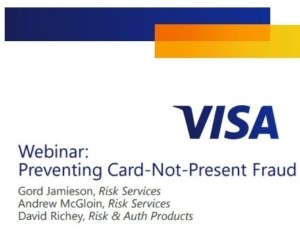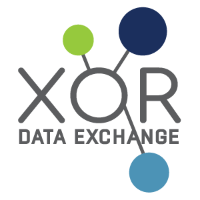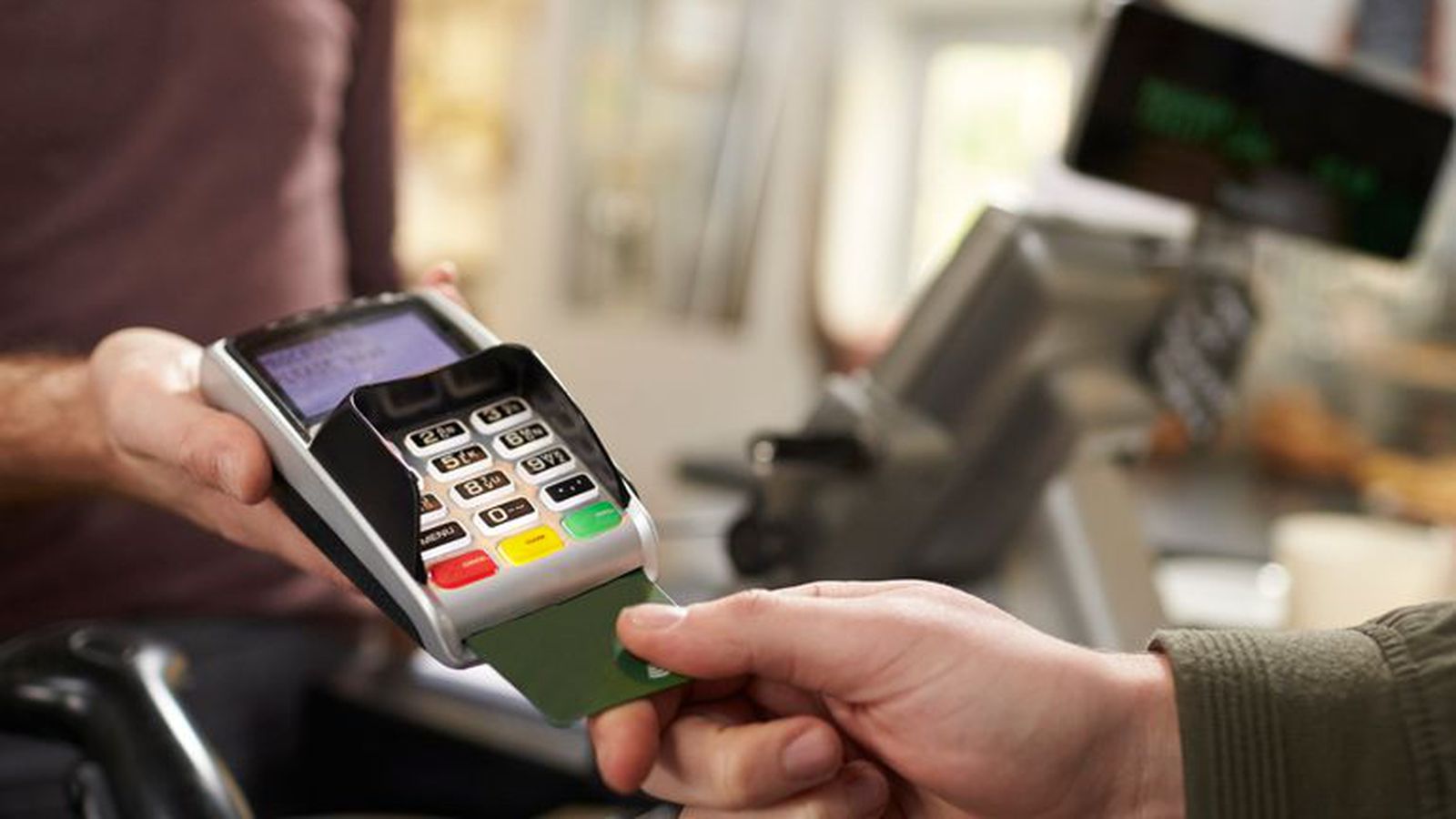 Today, we’ve got a payments news update on chargebacks, credit card fraud, online security and fraud risk management. Pinpoint Intelligence reported a 40% increase in chargebacks and pre-chargeback alerts according to CEO Benjamin Grossman, partly caused by stronger EMV chip card protection pushing criminals to online fraud. Visa US offers an excellent webinar titled “Preventing Card-Not-Present Fraud.” In China, cybercrime is growing with more than 20,000 fraud reports totaling more than $28.4 million.
Today, we’ve got a payments news update on chargebacks, credit card fraud, online security and fraud risk management. Pinpoint Intelligence reported a 40% increase in chargebacks and pre-chargeback alerts according to CEO Benjamin Grossman, partly caused by stronger EMV chip card protection pushing criminals to online fraud. Visa US offers an excellent webinar titled “Preventing Card-Not-Present Fraud.” In China, cybercrime is growing with more than 20,000 fraud reports totaling more than $28.4 million.
The Association of Certified Fraud Examiners found over 80% of frauds were created by people in accounting, operations, sales, executive level and upper management, customer service, and purchasing. Only 7% of fraudsters had prior records of fraud making risk management a challenge. Austin, TX startup XOR Data Exchange introduced a free resource for online retailers to identify and prevent account takeover attempts caused by data breaches.
 Two-thirds of Canadians are still concerned about identity fraud although the number is decreasing according to research from the Chartered Professional Accountants of Canada. What’s the cost to acquire financial information on the dark web? BetaNews reports fraudsters can acquire financial account data on the dark web for Uber for as little as $3.78, Facebook ($3.02), Paypal ($6.43) and Cards ($0.22).
Two-thirds of Canadians are still concerned about identity fraud although the number is decreasing according to research from the Chartered Professional Accountants of Canada. What’s the cost to acquire financial information on the dark web? BetaNews reports fraudsters can acquire financial account data on the dark web for Uber for as little as $3.78, Facebook ($3.02), Paypal ($6.43) and Cards ($0.22).
The Global Business Travel Association launched a work group to develop guidelines for virtual card payments. Payment21 and ACI Worldwide partnered on a new program to provide merchants with anti-money laundering (AML) bitcoin payments. CNet offered merchants five tips on how to choose a payment processor including price and security.
Risk-Control Exec Outlines Tactics for Online Merchants to Survive a ‘Perfect Storm’
 The migration of payment card fraud to the Internet in the wake of EMV chip cards coming to the point of sale is not new, but new findings from a company that specializes in card-not-present risk control and chargeback reduction provide insights on the breadth of the problem and offer ways to mitigate it.
The migration of payment card fraud to the Internet in the wake of EMV chip cards coming to the point of sale is not new, but new findings from a company that specializes in card-not-present risk control and chargeback reduction provide insights on the breadth of the problem and offer ways to mitigate it.
Delray Beach, Fla.-based Pinpoint Intelligence saw a 40% increase in chargebacks or pre-chargeback alerts among its client base over 2015, according to Benjamin Grossman, the company’s chief executive and cofounder. “Most of it can be [attributed] back to, almost directly, to EMV implementation.” said Grossman, speaking Tuesday at the Southeast Acquirers Association annual conference in Charlotte, N.C. “We’re looking at a continued increase in online fraud.”
The coming of EMV chip cards in the past two years has made it very difficult for crooks to use counterfeit magnetic-stripe cards at the point of sale. As predicted, fraudsters have turned their attention to more vulnerable card-not-present channels, where chip cards offer no more protection than the old mag-stripe cards. Via digitaltransactions.net
Webinar: Preventing Card-Not-Present Fraud
 Visa US has an excellent webinar titled “Preventing Card-Not-Present Fraud” and available for merchants and business viewing online. The report looks in-depth at the challenges of card-not-present (CNP) fraud and a range of easily implemented solutions to lower risk.
Visa US has an excellent webinar titled “Preventing Card-Not-Present Fraud” and available for merchants and business viewing online. The report looks in-depth at the challenges of card-not-present (CNP) fraud and a range of easily implemented solutions to lower risk.
Visa predicts that CNP fraud will double from $1.7 trillion to $3.5 trillion by 2019. It expect CNP fraud to continue to outpace sales in the channel as markets migrate to EMV Chip. CNP now accounts for 52% of US domestic total fraud but is
only 40% of total sales volume.
One year after 50% chip-on-chip, Canada and Australia saw CNP fraud rates increase by 30.1% and 126.1% respectively. They expect similar US growth patterns as EMV chips predominate, pushing criminals to CNP online fraud. The webinar offers valuable insight and advice for merchants on preventing or reducing risk of CNP fraud. Via visa.com
Cybercrime in China: Online Fraud
 A window into the nature of China’s domestic cybercrime problem can be found in a report issued this year by the “Network Hunt Platform” of the Beijing Public Security Bureau (available here, in Chinese). According to the report on cybercrime in 2016, the platform received 20,623 reports of online fraud with a total loss of RMB195 million (approximately US$28.4 million). While the reports declined 17.1% from 2015, the averaged loss per victim increased 85.5% to RMB9,471 (approximately US$1,350).
A window into the nature of China’s domestic cybercrime problem can be found in a report issued this year by the “Network Hunt Platform” of the Beijing Public Security Bureau (available here, in Chinese). According to the report on cybercrime in 2016, the platform received 20,623 reports of online fraud with a total loss of RMB195 million (approximately US$28.4 million). While the reports declined 17.1% from 2015, the averaged loss per victim increased 85.5% to RMB9,471 (approximately US$1,350).
The report describes a variety of frauds, also commonly seen in the United States and other countries. The growth of cybercrime in China may have some relation to the rise of Fintech (which in itself may be a response to the slower development of conventional banking and financial services in China).
According to the report, victims tend to live in more economically developed provinces. The economic powerhouse Guangdong Province has the most victims in the report (2,565), followed by the prosperous East Coast provinces of Shandong (1,422), Jiangsu (1,132), and Zhejiang (1,054). Interestingly, the relatively less developed southwestern province of Sichuan (1,069), and the comparatively poorer province of Henan (1,113) are in this group. Over 40% of the victims are born after 1990, with the largest number of victims at 26 years of age. Via forbes.com
Why Your Business Is Toast Without Risk Management
 According to the Association of Certified Fraud Examiners, the world’s largest anti-fraud organization, one study found that over 80% of frauds examined in the study were perpetrated by people in accounting, operations, sales, executive level and upper management, customer service, and purchasing. This study also found that only 7% of fraudsters had a prior record of fraud.
According to the Association of Certified Fraud Examiners, the world’s largest anti-fraud organization, one study found that over 80% of frauds examined in the study were perpetrated by people in accounting, operations, sales, executive level and upper management, customer service, and purchasing. This study also found that only 7% of fraudsters had a prior record of fraud.
This means that you can’t just run a background check on your employees and expect it to tell you who is most likely to commit fraud. You have to mitigate your risk in other ways.
You may not see everything that goes on in your company, but your employees see more than you do. That’s why it’s imperative that you set up a reporting system that includes defining different types of fraud as well as the consequences associated. When people know they’re being watched by management and other employees, they’ll hopefully be less likely to commit fraud. Via channels.theinnovationenterprise.com
Online Retailers Now Armed with Free Fraud Prevention Resource
 Austin-based data and analytics startup XOR Data Exchange is introducing a free resource for online retailers to identify and prevent account takeover attempts caused by the increasing frequency of data breaches that include account login credentials.
Austin-based data and analytics startup XOR Data Exchange is introducing a free resource for online retailers to identify and prevent account takeover attempts caused by the increasing frequency of data breaches that include account login credentials.
XOR’s Compromised Identity Exchange Basic platform allows e-retailers insight into the level of identity theft risk associated with a specific customer based on the number and types of data breaches the individual has been impacted by, whether or not those breaches are producing fraud, and if the individual’s stolen information is available for sale on the Dark Web. Participating retailers will also receive details about recent data breach activity and format of any compromised account passwords in order to implement authentication measures as needed to ensure a purchase is being made by the rightful person.
By implementing this free version of XOR’s Compromised Identity Exchange, which was initially introduced in May 2016, retailers that process online transactions for customers are able to determine the risk level of identity theft and account takeover associated with approving a specific transaction or fulfilling an order. For many of these retailers, customer payment and shipping information is automatically saved for convenience, putting these individuals at risk of identity theft. Via cbs58.com
Canadians believe businesses working to protect personal information, but cybersecurity concerns linger: fraud survey
 There is a sharp drop in the number of Canadians expressing concern about identity theft this year compared to last year, and Canadian businesses are working to protect personal information of customers, a new survey conducted for the Chartered Professional Accountants of Canada (CPA Canada) has found.
There is a sharp drop in the number of Canadians expressing concern about identity theft this year compared to last year, and Canadian businesses are working to protect personal information of customers, a new survey conducted for the Chartered Professional Accountants of Canada (CPA Canada) has found.
The survey found that two-thirds (66%) of respondents agreed that they were concerned about identity theft, “significantly down” from 74% in 2016. At the same time, 72% of participants agreed that Canadian businesses, in general, are doing the best they can to safeguard the personal information of their customers, up from 66% last year.
However, for the second straight year, 73% of the respondents agreed that they are concerned that Canadian businesses are vulnerable to cyberattacks regarding personal information. Via canadianunderwriter.ca
How the dark web creates a fraud pandemic
 The degree of technical knowledge required to commit card fraud or to take over an account is now minimal. The ability to download the Tor browser, access some sites on the dark web and make a purchase in bitcoin is not difficult. And it is certainly not expensive; card and personal details can be purchased for pennies.
The degree of technical knowledge required to commit card fraud or to take over an account is now minimal. The ability to download the Tor browser, access some sites on the dark web and make a purchase in bitcoin is not difficult. And it is certainly not expensive; card and personal details can be purchased for pennies.
The latest pricing on the dark web for premium details are as follows:
Uber: $3.78
Facebook: $3.02
Paypal: $6.43
Cards (gen): $0.22
On top of the low barrier to access, there is a growing community of people willing to use these details with little to no stigma attached to the crime widely seen as victimless. This heady combination gives us both the motive and opportunity to commit crimes and the lack of any social pressure to prevent people from doing it. Via betanews.com
GBTA Launched Virtual Payment Task Force: Business Travel News
 The Global Business Travel Association has created a virtual payment task force to better understand hotels’ difficulties in accepting single-use virtual cards, to evaluate the solutions the industry has implemented and to educate the industry on the benefits of virtual cards, said task force co-chair Juliann Pless, who also is CSI GlobalVCard SVP of travel. “To say that the hotels were left out of the process of creating these virtual cards solutions would probably be true,” Pless said.
The Global Business Travel Association has created a virtual payment task force to better understand hotels’ difficulties in accepting single-use virtual cards, to evaluate the solutions the industry has implemented and to educate the industry on the benefits of virtual cards, said task force co-chair Juliann Pless, who also is CSI GlobalVCard SVP of travel. “To say that the hotels were left out of the process of creating these virtual cards solutions would probably be true,” Pless said.
After a panel on virtual cards at last year’s annual GBTA conference, Pless said, hotel brands, card networks, payment providers, travel management companies and global distribution systems expressed interest in continuing the discussion. GBTA research manager Kate Vasiloff said the task force formed organically and that GBTA didn’t seek any particular supplier or sector’s participation. The members, which now number 22, have met about twice a month since January. The task force also has met with hotels.
According to Pless, some hotels struggle with how corporations authorize them to charge virtual cards. Hotels run traditional credit cards at check-in to validate them and then run them again at check-out to charge the room rate, taxes, surcharges and additional costs like meals and incidentals. Single-use virtual cards, however, are designed by name to be charged once. “[Hotels] have certain rules and regulations that they have to follow when it comes to the charge-back process, credits and refunds, and virtual cards can pose a bit of a barrier to that process for them,” Pless explained. “[Hotels] are just as eager to get some standardization in place so that the process is easy and seamless.” Via businesstravelnews.com
Payment21, ACI Worldwide enter strategic collaboration for AML compliant bitcoin payments
 Payment21 that enables merchants to accept AML-compliant cryptocurrency transactions online, and universal payments company ACI Worldwide, have announced a strategic collaboration that enables payment service providers (PSPs) to offer merchants with Anti-Money Laundering (AML) compliant bitcoin payments, globally.
Payment21 that enables merchants to accept AML-compliant cryptocurrency transactions online, and universal payments company ACI Worldwide, have announced a strategic collaboration that enables payment service providers (PSPs) to offer merchants with Anti-Money Laundering (AML) compliant bitcoin payments, globally.
With the announcement, over 130 PSPs and 56,000 merchants can now accept Bitcoin payments, meeting the need for AML compliance. The bitcoin payments are accepted via ACI’s UP e-commerce Payments solution.
Payment21 is an award-winning bitcoin cashier system that gives AML-compliant cryptocurrency transactions, designed to meet the needs of e-commerce merchants and multinational corporations with specific regulatory requirements. Via econotimes.com
5 things to consider when picking a credit card processor
 When Corey Mullins first decided to find a credit card processor for his Louisville, Kentucky-based landscaping business, it was all about name recognition. “In terms of research, I did none essentially,” Mullins said. “I basically decided I needed to do it and just chose a provider that was all the rage at the time.”
When Corey Mullins first decided to find a credit card processor for his Louisville, Kentucky-based landscaping business, it was all about name recognition. “In terms of research, I did none essentially,” Mullins said. “I basically decided I needed to do it and just chose a provider that was all the rage at the time.”
As Mullins would eventually discover, credit card processing is all about the details. A reliable credit card-processing service is essential to the livelihood of a small business, but with so many options out there it can be difficult to figure out which one makes the most sense for your particular business needs.
A good place to start is figuring out whether a payments processor charges a monthly fee or a flat per-transaction fee. Companies such as Square and PayPal do not have monthly service fees and instead take a percentage of every transaction the merchant processes. For instance, Square charges a 2.75 percent transaction fee while PayPal’s fee is 2.9 percent. Via cnet.com








LET’S CONNECT